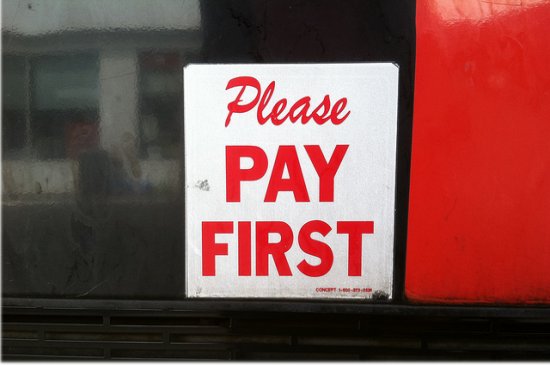
If you're struggling to pay your bills, some months you may have to skip a payment or pay less than you should because you run short on money. If this is the case, you should consider which debt is more important. You may be tempted to prioritize by which lender you're most annoyed with, which bill is less dollar-wise so you can get the satisfaction of being able to pay something in full – or some other criteria. But in fact, there are things to bear in mind, because not all debt is created equal.
Before we start this discussion, you should know that we're not encouraging you to skimp on your bills. If you can afford to pay your bills, you should. You shouldn't skip a bill just because you don't feel like it or would rather take a trip, buy a new outfit or splurge on something else than meet your financial obligations. When you sign to take on debt, you're making an agreement to be responsible and pay what you owe. Only drastic circumstances should prevent you from holding up your end of the bargain.
Old Debts Can Wait
Debt contracts, with the exception of student loans, have a life span. This impacts both your credit report and the ability to collect on that debt. In North Carolina, the statute of limitations on debt are generous to debtors. Revolving credit like credit cards has a limit of three years. What this means is that three years after the debt goes bad – i.e. when you stop making payments – the creditor loses the ability to pursue you in court to collect the debt. They are no longer able to sue you for a judgment or a lien on your assets to satisfy the debt. Creditors may push hard when they know the deadline is approaching, but if your money is tight, you should just wait them out.
For credit reporting, seven years after the debt goes bad, it will be wiped off your report. But here's where debt collectors can get sneaky. They may call you and make threats and encourage you to make even a small payment. If you make that payment, it starts the credit report clock ticking all over again. If you have old debts lingering that you haven't paid on in years, just let these go if your money is tight so they can fall off your credit report. If you're not sure about the deadline, request a free copy of your credit report and look at the account so you know when older debts will be removed from your report so you can make an informed decision on what to pay and what to let go.
Unsecured Debts Can Wait
If you have to choose between paying your rent/mortgage, putting food on the table and paying unsecured debt like a credit card bill, prioritize your living expenses. Secured debts are those that are tied to a tangible asset like a house, car or other property. If you don't service your secured debts, eventually the creditor will take the asset away from you. This can be devastating if you can't move, have a lot of equity in your home or just plain don't want to lose your house. Delinquencies on mortgage payments will linger for months or even years, in some cases, before the creditor moves to foreclose and takes your home.
The longer you go without making a payment, the harder it is to catch up, so try and pay your mortgage rather than your credit card bill, gym membership and other non-essentials that are unsecured. As for vehicle loans, these lenders are more on the ball for repossession. If you miss two car payments, you can expect to see your car or truck towed away after a notice of intent to repossess. Because it's much easier for this type of lender to take back your vehicle and sell it quickly to recover what you owe them, they will. And, what's worse, they will pursue you for any difference between what you owed and what the vehicle sold for – you can end up with no car and still in debt.
Final Thoughts
There are some additional considerations for mortgages and car loans. If your home value is far less than what you owe, this is called being “upside down” or “underwater” on your loan. If this is the case, you may want to think hard about whether your home is worth keeping and whether you can truly afford it. The same goes for your car loan. If you owe much more than the car is worth, you may want to get out from under the loan. Bankruptcy can help with these circumstances.
If you relinquish your home and/or car because they're not worth what you're paying and you're deep in debt, a Chapter 7 petition can wipe out any remaining balances as well as most unsecured debts so you can get a financial fresh start. If you're behind on payments, but your home/car have positive equity and you don't want to lose them, filing a Chapter 13 petition will give you extra time to catch up on your past due balances.
